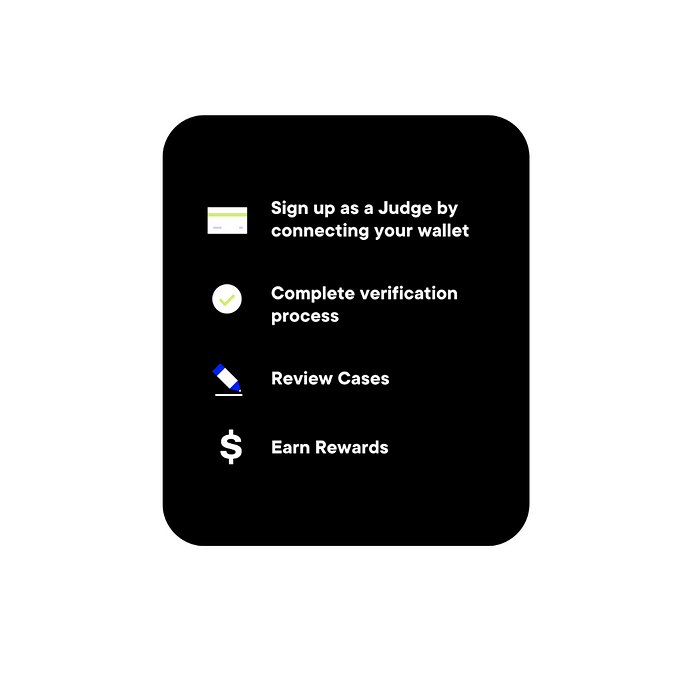Why You Should Consider VAIOT’s DDRS for Efficient Dispute Resolution
From 400 days to 24 hours. Discover how Decentralized Dispute Resolution can be up to 94% more efficient than traditional arbitration.
Key Takeaways:
- VAIOT’s Decentralized Dispute Resolution System (DDRS) resolves disputes within hours or days, significantly faster than traditional legal systems, which can take over a year and often incur costs that exceed the value of the claim.
- By leveraging blockchain technology and AI, DDRS ensures transparency, impartiality, and efficiency in resolving online transaction disputes, addressing the limitations of centralized systems like eBay’s.
- The system utilizes a network of incentivized, KYC-verified jurors, ensuring fair and transparent resolutions across various use cases.
- DDRS supports both Web3 and Web2 users, with future plans for fiat payment integration and API integrations with popular e-commerce platforms among others, making it widely accessible and scalable.
- VAIOT’s DDRS is a cornerstone in the emerging field of DeLaw, positioning the company at the forefront of legal technology innovation.
The digital economy has increased to an unprecedented volume of online transactions and agreements. With an estimated 20 to 100 million online agreements per month across various services and products (Stadista, 2023), the need for efficient dispute resolution has never been more pressing. Traditional legal systems often struggle to handle the sheer volume and complexity of these disputes, especially when dealing with small-value claims across national borders.
Traditional legal systems often struggle to keep pace with the volume and complexity of online transactions. According to a 2020 study by the European Commission (2020), it takes an average of 400 days to resolve a standard civil or commercial case in EU courts, with costs often exceeding the value of the claim itself.
Szymon Redding, VAIOT’s lead developer, explains the rationale behind DDRS:
“Traditional dispute resolution methods are often slow, expensive, and ill-suited for the fast-paced digital world. Our Decentralized Dispute Resolution System addresses these issues head-on, providing a fast, fair, and cost-effective solution tailored for online transactions.”

Online Dispute Resolution (ODR), a field born in the 1990s to leverage technology for more efficient conflict resolution. Platforms like eBay implemented ODR systems, enabling users to resolve disputes without resorting to traditional courts. However, these centralized systems faced limitations in transparency and impartiality.
VAIOT’s Decentralized Dispute Resolution System (DDRS) represents a significant leap forward, addressing these limitations through blockchain technology and AI. By decentralizing the process, DDRS ensures that no single entity controls the outcome, but rather an unbiased panel of judges, enhancing trust and fairness.
Julian Mayhew, Former Europe Technology Consultant at the British Embassy in Spain, offers an outside perspective:
“As someone working within a centralized governmental structure, I’m impressed by the potential of decentralized systems like VAIOT’s DDRS. It represents a paradigm shift in how we approach dispute resolution, offering efficiency and accessibility that traditional systems struggle to match.”

How DDRS Streamlines Service Transactions
DDRS simplifies the process of creating service transactions by leveraging blockchain technology through smart contracts. To initiate a transaction, parties connect their web3 wallets and input essential details such as the service description, acceptance criteria, deadline, price, and currency. Here’s a breakdown of its key features:
Service transaction creation
Users can create service agreements (transactions) using DDRS before hiring a freelancer. The transaction includes all agreed details of the work, with payment held in escrow until service delivery and dispute resolution, if necessary.
Buyers or service providers can initiate the process by describing the services, and acceptance criteria for the work to be considered “successful”, and choosing a category, deadline and price.
The proactive party then shares a unique transaction link with the other party, allowing them to review the terms and suggest edits if necessary.
AI-Powered Negotiation
One of the key features that sets DDRS apart is its AI-powered negotiation chatbox. This intelligent assistant provides invaluable support to users during the negotiation process by:
- Answering questions related to service creation
- Offering suggestions for user inputs
- Tracking agreed terms and updating them based on changes
- Identifying and highlighting ambiguous terms or conditions
- Providing dispute resolution suggestions based on chat history
- Translating chat content in real-time for users who speak different languages
By leveraging AI technology, DDRS ensures that both parties have a clear understanding of the terms and conditions, minimizing the risk of misinterpretation and future disputes.
The AI-powered chatbox facilitates the negotiation of transaction terms before payment, serving as evidence in case of disputes. Once both parties agree on the terms, the buyer submits the payment, which is securely held in the blockchain until the service is completed satisfactorily or a dispute arises.
Dispute Initiation
Buyers have up to 48 hours after the deadline to check the work and raise a dispute if necessary. The outcome of the dispute is enforced through smart contracts, with escrow managing payments and deliveries.
Becoming a Juror: Criteria and Selection Process
DDRS relies on a decentralized network of jurors to resolve disputes fairly and efficiently. Anyone staking $VAI can become a juror by connecting their wallet and answering questions to determine their area of expertise. This approach ensures that disputes are resolved by knowledgeable individuals with relevant backgrounds.
In the future, VAIOT plans to introduce assessments and partner with educational institutions to further enhance the quality and credibility of the juror pool.
There are 2 main elements for Jurors:
Panel of Jurors: DDRS uses a panel of KYC-verified jurors, classified by expertise areas. When a dispute arises, 19 random voters from the pool are selected to determine the outcome, ensuring fairness and reducing bias.
Voting and Rewards: Jurors submit votes, which are analyzed by an AI mechanism to ensure validity. Rewards in VAI$ are distributed to jurors whose votes match the majority outcome. Jurors also gain XP, allowing them to level up from Juror to Attorney to Judge, earning more rewards, certificates and unlocking new avatars.
The Dispute Resolution Process
In the event of a dispute, jurors play a crucial role in reviewing evidence and determining the outcome. The process involves:
- Examining the reason for the dispute, original conditions, and proof of work
- Voting on whether each acceptance criterion was met
- Deciding on the overall outcome (refund or no refund)
- Determining the refund percentage, if applicable

To ensure fairness in the voting process, DDRS employs an AI mechanism that checks the coherence of information and the time spent analyzing evidence. This system also detects jurors who frequently vote with the minority or behave randomly, penalizing dishonest jurors with reduced XP and limited access to disputes while rewarding dedicated jurors for their contributions.
DDRS by VAIOT vs Traditional Legal Systems:
There are several advantages over traditional dispute resolution methods:
- Speed: DDRS can resolve disputes within hours or days, compared to weeks or months for traditional methods.
- Cost-effectiveness: By automating processes and eliminating intermediaries, DDRS significantly reduces costs.
- Impartiality: The use of randomly selected, KYC-verified jurors and AI-assisted vote analysis ensures a fair and unbiased process.
- Transparency: All actions and decisions are recorded on the blockchain, allowing for full auditability.
- Incentivization: The reward system encourages jurors to participate actively and make fair decisions.

Use Cases
Freelance Contract Dispute:
A client and a freelance designer disagree on whether project milestones were met. They submit their case to DDRS. Jurors with relevant expertise review the evidence, including the initial agreement and communication logs. The majority decision determines the appropriate payment, which is then automatically executed from the escrowed funds.
E-commerce Dispute:
A customer claims a product doesn’t match its online description. The seller disagrees. Using VAIOT’s DDRS, both parties submit evidence. Jurors review the case and vote. If the customer wins, a refund is automatically processed. If the seller wins, the held payment is released to them.
Service Quality Dispute:
A client is unsatisfied with the quality of a delivered service. They initiate a dispute within 48 hours of the deadline. Jurors review the original agreement, delivered work, and both parties’ statements before voting on a resolution.
Community-Powered Project and Token Evaluation:
The Web3 community evaluates and ranks new projects and their tokens. Project authors initiate the process by funding rewards for judges and covering fees, with funds held in escrow. Rewards are paid in ETH or the project’s native token, and expert judges from various fields create a comprehensive project rating. The process involves:
- Judging Projects and Tokens
Based on a predefined set of criteria, jurors evaluate evidence and rank projects.
- Juror-Based Evaluation
Jurors represent different fields of expertise in web3 project evaluation, such as information and code security, tokenomics, team & competence evaluation, and technology concept soundness.
- Reward Distribution
Rewards are distributed to jurors based on their evaluations, promoting thorough and fair assessments.
Future Developments
VAIOT is committed to continuously improving and expanding the capabilities of DDRS. In the near future, the platform will enable web2 users to create service agreements that are protected by the same dispute resolution mechanism, making it even more accessible to a wider audience. This integration with Legal Torch, another innovative solution by VAIOT, will allow web2 users to seamlessly access web3 technology and benefit from the security and efficiency offered by blockchain-based smart contracts.
Moreover, VAIOT plans to introduce several exciting features to DDRS, including:
- Web2 (FIAT payments) integration, enabling users to make and receive payments in traditional currencies
- Advanced UX improvements to enhance user experience, gamification and ease of use
- API integration with popular e-commerce platforms, marketplaces, and companies, expanding the reach and versatility of DDRS
VAIOT’s Decentralized Dispute Resolution System (DDRS) represents a significant leap forward in the way businesses and freelancers engage in service transactions. By leveraging blockchain technology and AI-powered tools, DDRS streamlines the process of creating, negotiating, and executing service agreements while providing a fair and efficient mechanism for resolving disputes.
What DDRS Means for VAIOT and the Future of Dispute Resolution
DDRS is a cornerstone of VAIOT’s vision for DeLaw — a new paradigm where legal processes are decentralized, automated, and accessible to all. This system is part of a broader ecosystem of legal tech products that VAIOT is developing. Furthermore, DDRS by VAIOT also aligns with governmental initiatives. The European Commission, for instance, has implemented an ODR platform to enable consumers to resolve disputes with traders, indicating growing recognition of the need for alternative dispute-resolution methods.
The potential impact is significant. As online transactions continue to grow, with a 15% increase in demand for online services over the past four years (Kempton, 2023) and a 30% increase in freelancing services on platforms like Upwork since 2019 (Upwrok, 2023), DDRS is well-positioned to meet the rising need for efficient dispute resolution.
By bridging the gap between traditional legal systems and the demands of the digital economy, VAIOT’s ecosystem of multiple legal tech tools, now including DDRS, is not just solving a problem — it’s at the forefront of a new era of accessible, transparent, and efficient justice.
About VAIOT
VAIOT offers a portfolio of blockchain-based AI Assistants and on-chain Intelligent Contracts for businesses and consumers to provide automated services and transactions. VAIOT- AI and Blockchain for Legal Innovation.
Read our AI Legal Assistant Lightpaper here.
For more information about VAIOT, visit our website www.vaiot.ai, or join our Twitter , Telegram Community, Discord Server or Youtube Channel for continuous updates.
The VAIOT Website, Platforms, Solutions, and Services, and in particular VAI Tokens, are not offered for use and purchase to natural and legal persons having their permanent residence or their seat of incorporation in any of the restricted areas as listed in VAIOT’s Whitepaper, in particular: USA, Germany, Puerto Rico, US Virgin Islands, Canada, China, Singapore, Afghanistan, Central African Republic, Cuba, Democratic Republic of the Congo, Eritrea, Iran, Iraq, Libya, North and South Korea, Somalia, South Sudan, Sudan, Yemen, Zambia (Restricted Areas).
